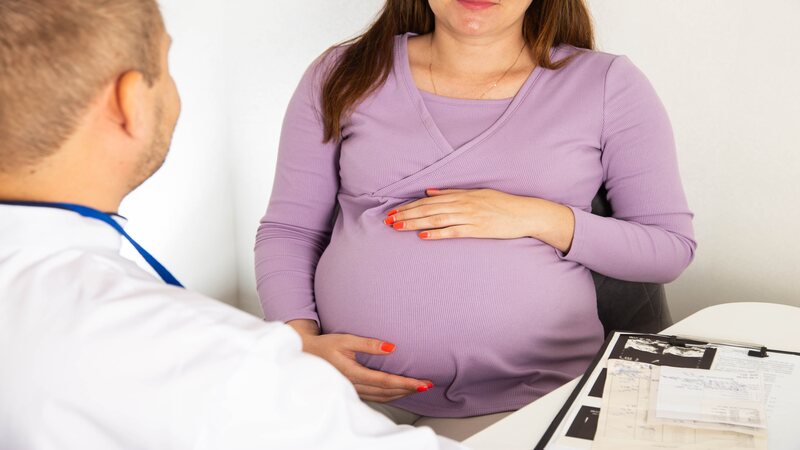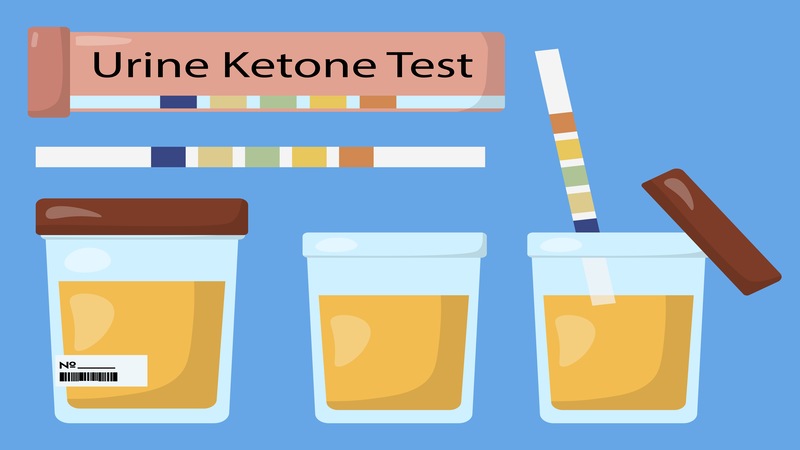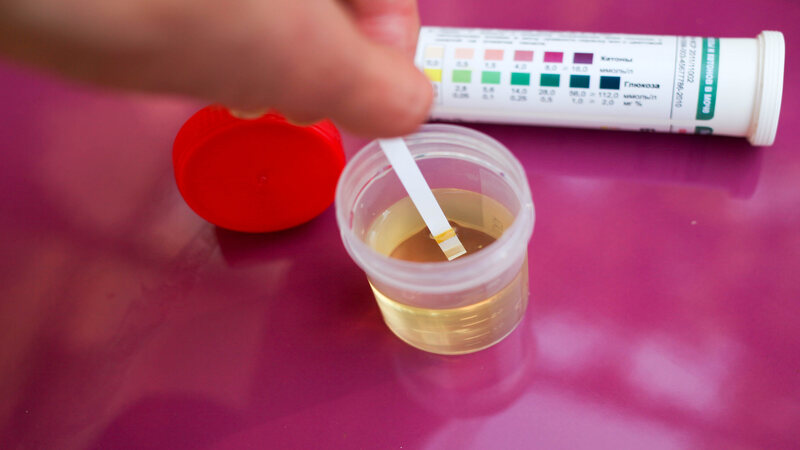
Have you wondered what ketones are since they showed positive in your urine test? You thought you were doing it all right to manage weight and blood sugars for your Gestational Diabetes and you ended up raising your ketone levels?
Then you need to know what ketones are. Why are they produced? What does an increase in ketone levels do to you and your fetus? How Gestational Diabetes, Diabetic Ketoacidosis, Ketosis are linked? Does Diet play a role in reducing your ketones? Let’s discuss these questions in this article.
What Are Ketones?
Ketones are elements derived from the breakdown of fat which the body utilizes to produce energy during emergency concerns like starvation or glucose deficiency. The body receives essential energy from the consumption of food and it gets converted into glucose and blood sugar. Access to blood sugar is obtained through insulin. When you are faced with detecting Ketones in Pregnancy, you must understand that the pregnancy hormones boost the body’s hormones against insulin.
What Does Ketones In Urine During Pregnancy Mean?
 Ketones are produced when our body uses fat reserves in the body instead of glucose for energy production. This happens when you don’t eat enough carbohydrate food as per diet restrictions or frequently fasting or eating high protein and high-fat food. Another reason is having uncontrolled diabetes in which glucose stays in the blood and is not utilized by your body. The resulting ketones produced will enter the blood circulation and urine causing ketonemia and ketonuria respectively.(1)
Ketones are produced when our body uses fat reserves in the body instead of glucose for energy production. This happens when you don’t eat enough carbohydrate food as per diet restrictions or frequently fasting or eating high protein and high-fat food. Another reason is having uncontrolled diabetes in which glucose stays in the blood and is not utilized by your body. The resulting ketones produced will enter the blood circulation and urine causing ketonemia and ketonuria respectively.(1)
Are Ketones Harmful During Pregnancy?
Ketones are normal during pregnancy if you are not starving or do not have diabetes. However excessive Ketones during pregnancy have adverse outcomes both on the fetus and mother. Ketones in urine and blood can be diffused into the placenta to reach the fetus and can result in fetal distress or a decrease in fetal heart rate. Also, they can affect the Central Nervous System of the fetus resulting in reduced childhood intelligence quota (IQ) which is another risk factor (2). Mothers having ketones is a warning of Diabetic ketoacidosis DKA, if untreated may result in severe dehydration, uncontrolled increase of glucose levels, severe organ damage, or Diabetic coma.
Ketones and Gestational diabetes?
There are two reasons for increasing ketone levels in the body during Pregnancy one is Diabetic Ketoacidosis and another one is Starvation Ketoacidosis. Uncontrolled Gestational Diabetes results in Diabetic Ketoacidosis whereas Prolonged starvation or severe vomiting during the third trimester can lead to Ketoacidosis.(3). Both require prompt treatment and clinical management under medical supervision.
Can Ketones In Urine Harm My Baby?
 Yes, it can harm your baby. Ketones in blood can cross your placenta and reach the baby. Only presence of ketones in the urine with low values may not harm the baby.But if exceed ,there are reports suggesting babies exposed to ketones during Pregnancy, especially third semester, can affect the intelligence quotient of babies. Babies exposed to ketones have less IQ compared to other babies.(1a)
Yes, it can harm your baby. Ketones in blood can cross your placenta and reach the baby. Only presence of ketones in the urine with low values may not harm the baby.But if exceed ,there are reports suggesting babies exposed to ketones during Pregnancy, especially third semester, can affect the intelligence quotient of babies. Babies exposed to ketones have less IQ compared to other babies.(1a)
Role Of Ketones In The Fetus
Ketones can be passed from mother to fetus through the placenta. They can be used by the fetus to generate energy like they use glucose. Different organs like the brain, kidney, and liver can metabolize ketones. Ketones can be an important part of fetal brain development. But in cases of excessive production of ketones in mothers, they can show an effect on the fetus and many studies say it can lead to lower childhood IQ observed in respective offspring than mothers with no ketones or trace amounts of ketones in their urine during pregnancy.(4)
How To Reduce Ketones In Urine During Pregnancy?
 You should understand the cause why you’re having ketones in urine and then treat accordingly with the help of your health care professional
You should understand the cause why you’re having ketones in urine and then treat accordingly with the help of your health care professional
- Check if you have uncontrolled Gestational Diabetes and start getting appropriate treatment.
- If you have Diabetic Ketoacidosis (DKA) you need to get appropriate medical attention with treatment before it is affecting you and your baby. There is no way to treat your ketones without treating DKA.
- If you have ketones without Diabetes check your diet for the amount of carbohydrates. Do not follow any diets. For more help contact a dietician
- Hydrate as often as you could
- Eating small frequent meals
- Include Moderate exercise daily.
When Should I Visit A Doctor?
Please visit a doctor if you
- Have high amount of ketones in your urine test
- Fever with Severe dehydration with vomiting and diarrhea
- If you are having diabetes with unusual raise in blood glucose levels than otherwise.
- If there is a fruity smell from your breath.
Ketones in urine during pregnancy come into picture if you are not properly treating your present Gestational Diabetes (GD). If you are having a GD diet plays a major role in ketone production in your body. It’s important to take less carbohydrates to maintain your blood sugars but not to avoid all of them leading to production of more ketones. It’s important to understand that ketones can cross the placenta and reach your baby. Excessive ketone levels in maternal urine can impact your offspring’s childhood IQ after birth. Please consult your doctor if the test is positive for the presence of ketones in urine and take necessary treatment.
FAQ’s
1. Are Ketones Normal During Pregnancy?
If you have only a trace amount of ketones without having gestational diabetes it can be considered normal. If your ketones test indicates more than 0.6 mmol/L please consult your doctor.
2. Is It Safe To Be In Ketosis While Pregnant?
No it is not safe. Elevated levels of ketones can be unsafe for you and your baby causing adverse fetal outcomes, fetal heart rate decelerations, low IQ in childhood.
3. What Is A Normal Blood Sugar Level During Pregnancy?
Normal Fasting blood sugar (FBS) level should be between 70-95 mg/dl. For Post prandial blood sugar levels (PPBS) should be between 110-140 mg/dl.
4. How Do I Control Blood Sugar Levels During Pregnancy?
Take more portions of fruits and vegetables, moderate portions of protein and fat based foods, Take less or minimal portions of carbohydrate meals but do not reduce your carbs completely. Avoid taking sugary foods and processed foods.
References
- Bronisz A, Ozorowski M, Hagner-Derengowska M. Pregnancy Ketonemia and Development of the Fetal Central Nervous System. Int J Endocrinol. 2018 Jun 4;2018:1242901. doi: 10.1155/2018/1242901. PMID: 29971100; PMCID: PMC6008755. – https://pmc.ncbi.nlm.nih.gov/articles/PMC6008755/
- Robinson HL, Barrett HL, Foxcroft K, Callaway LK, Dekker Nitert M. Prevalence of maternal urinary ketones in pregnancy in overweight and obese women. Obstet Med. 2018 – https://pmc.ncbi.nlm.nih.gov/articles/PMC6038017/
- Mohan N, Banerjee A. Metabolic emergencies in pregnancy. Clin Med (Lond). 2021 Sep;21(5):e438-e440. doi: 10.7861/clinmed.2021-0496. PMID: 34507926; PMCID: PMC8439503. – https://pmc.ncbi.nlm.nih.gov/articles/PMC8439503/#
- Diabetes Care, Ketones in Pregnancy: Why Is It Considered Necessary to Avoid Them and What Is the Evidence Behind Their Perceived Risk? – https://diabetesjournals.org/care/article/44/1/280/33020/Ketones-in-Pregnancy-Why-Is-It-Considered
